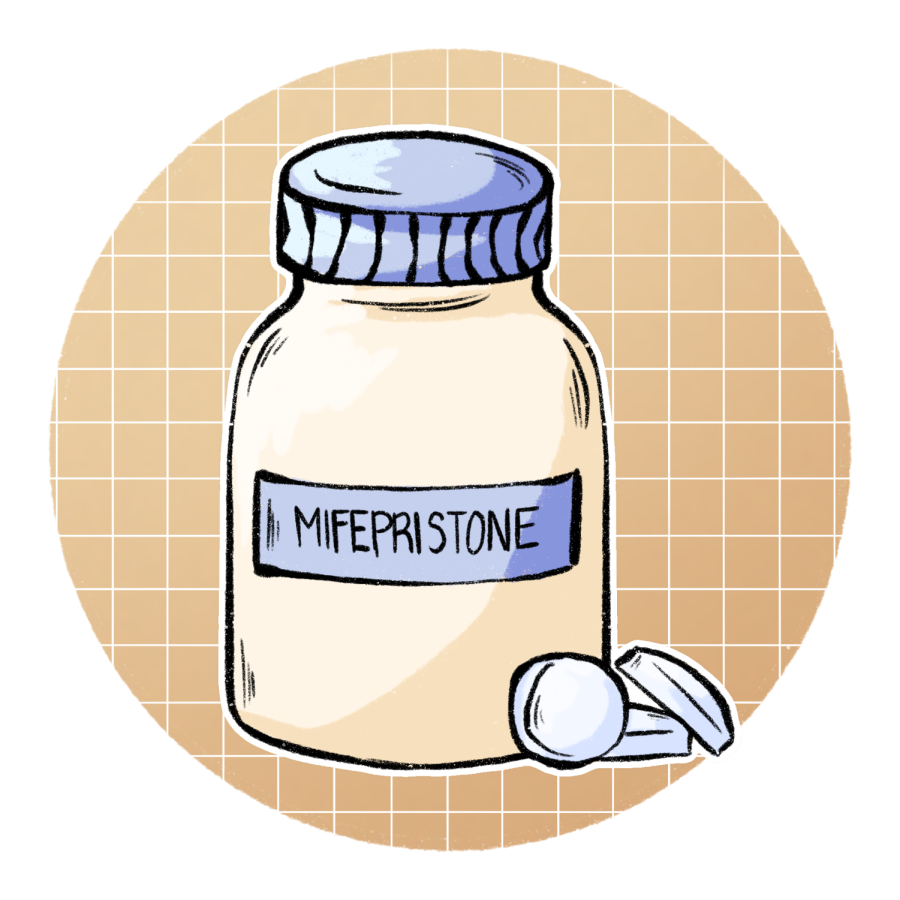Abortion medication use at risk in US District Court
March 29, 2023
A U.S. District Court in Amarillo, Texas, held hearings earlier this month for a case that could potentially reverse the Food and Drug Administration’s approval of mifepristone, a widely used abortion medication. The case follows a number of bills and political efforts to specify what falls under abortion access following the overturning of Roe v. Wade last year.
In Alliance for Hippocratic Medicine v. U.S. Food and Drug Administration, a group represented by Alliance Defending Freedom is suing the FDA claiming the agency violated the Food and Drugs Act when it approved mifepristone in 2000.
The act allows the FDA to approve drugs that treat life-threatening illnesses and conditions, said Elizabeth Sepper, a UT law professor who specializes in health law, anti-discrimination and religious liberty. She said the Alliance for Hippocratic Medicine argues that mifepristone was wrongfully approved because pregnancy is not a life-threatening condition.
“The FDA’s response is that pregnancy for some people can be a life-threatening condition and that (life-threatening) conditions are encompassed within this process,” Sepper said.
The group also claims that if the FDA approves a drug it must use an “apples to apples” comparison when it approves who can use the drug, Sepper said.
“If you have a clinical trial that only approved participation for women 18 to 25, then the FDA can only rely on that study to approve a drug for women 18 to 25,” Sepper said in regard to the hypothetical comparison. “This obviously would be enormously problematic as a rule for the FDA because they rely on a number of studies which have different procedures in place.”
Sepper said there is also an attempt to revive the Comstock Act which could affect the mailing of abortion medication. The Comstock Act of 1873 banned sending anything in the mail that could be used as contraception or could cause an abortion if it was being used against the law. The act has been defunct since some areas of the U.S. began to lawfully use contraception and abortion in the early 1900s, Sepper said.
Although mifepristone is the only drug in question in the case, reviving the Comstock Act would have ramifications for the mailing of all abortion medications, Sepper said.
“The Comstock Act would (have) a potentially major impact on abortion access, even more broadly than mifepristone in that if the (act) prevents mailing mifepristone, then it would also prohibit mailing misoprostol,” Sepper said.
Lauren Thaxton, an assistant professor in women’s health and OB-GYN, said in an email that mifepristone and misoprostol are often used together to induce abortion with a 95-99% effective rate, but misoprostol can be used alone with a 80-100% effective rate. Both medications are safe but misoprostol used alone can have more side effects such as vaginal bleeding and uterine cramping, Thaxton said.
U.S. District Judge Matthew Kacsmaryk has many obstacles to overcome to rule in favor of the Alliance for Hippocratic Medicine, Sepper said.
Sepper said the plaintiffs do not have standing in the case because the Alliance for Hippocratic Medicine cannot prove that they were injured by the over 20-year long approval of mifepristone. She said the lawsuit also exceeds the statute of limitations, meaning the suit was not brought within the right period of time.
“I don’t know that we can expect the judge to apply what should be very serious hurdles to his exercise of jurisdiction,” Sepper said. “I do not think this (will be) an easy opinion to write because he has to get over those hurdles to actually address the substance of the claims.”
Kacsmaryk was appointed by former President Donald Trump and previously worked for a religious liberty law firm, according to the Texas Tribune.
According to the official court transcription, Kacsmaryk said both sides did an “excellent” job presenting their cases and the court will “issue an order and opinion as soon as possible.”












